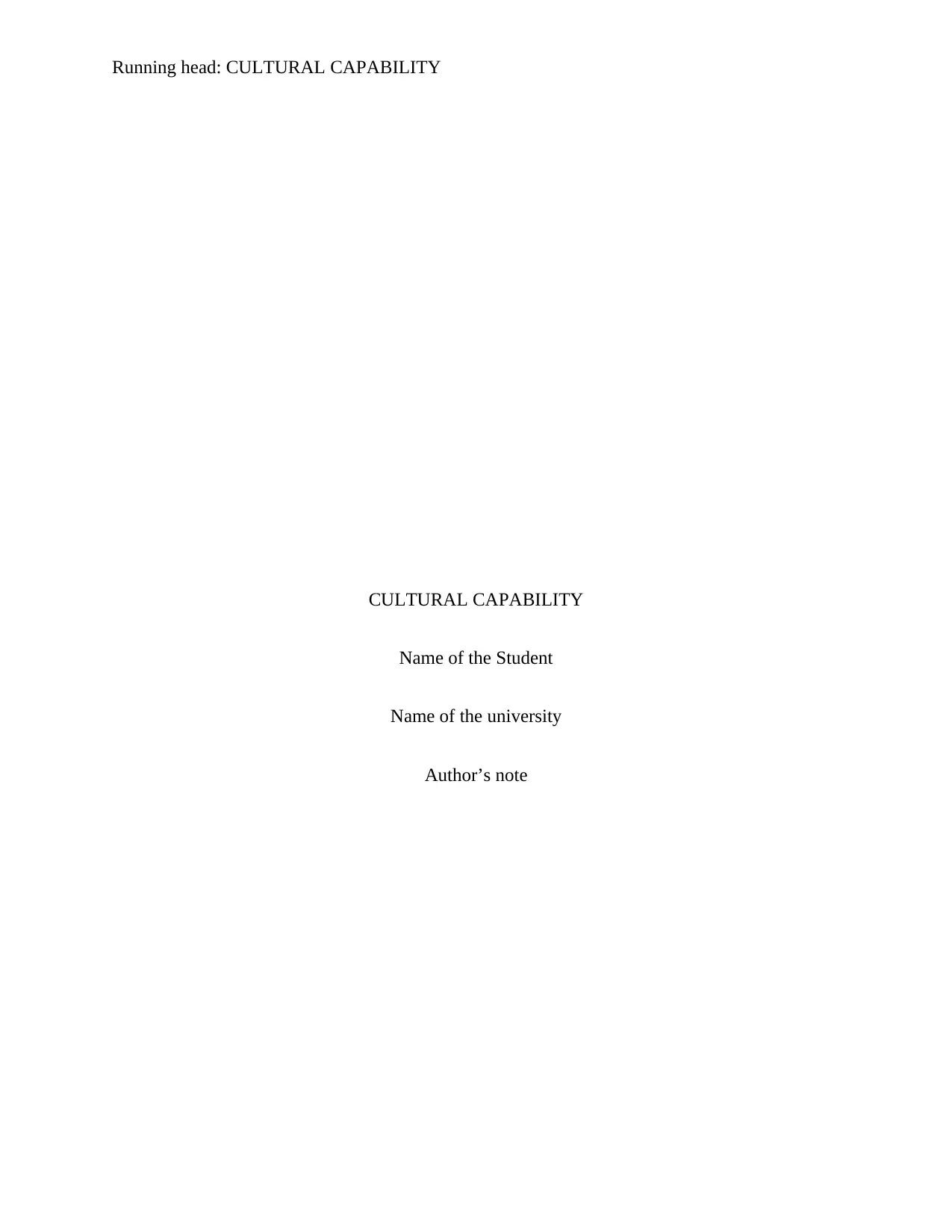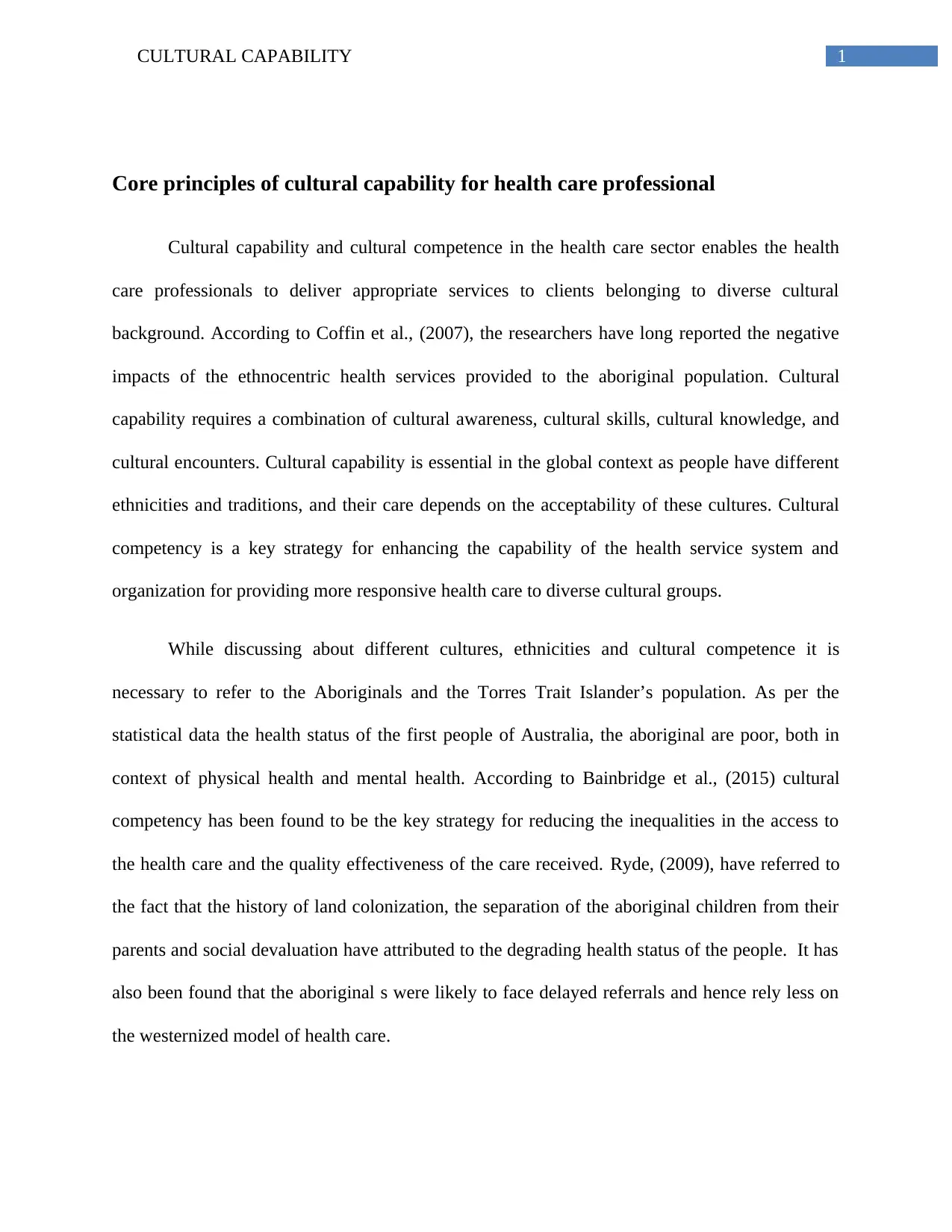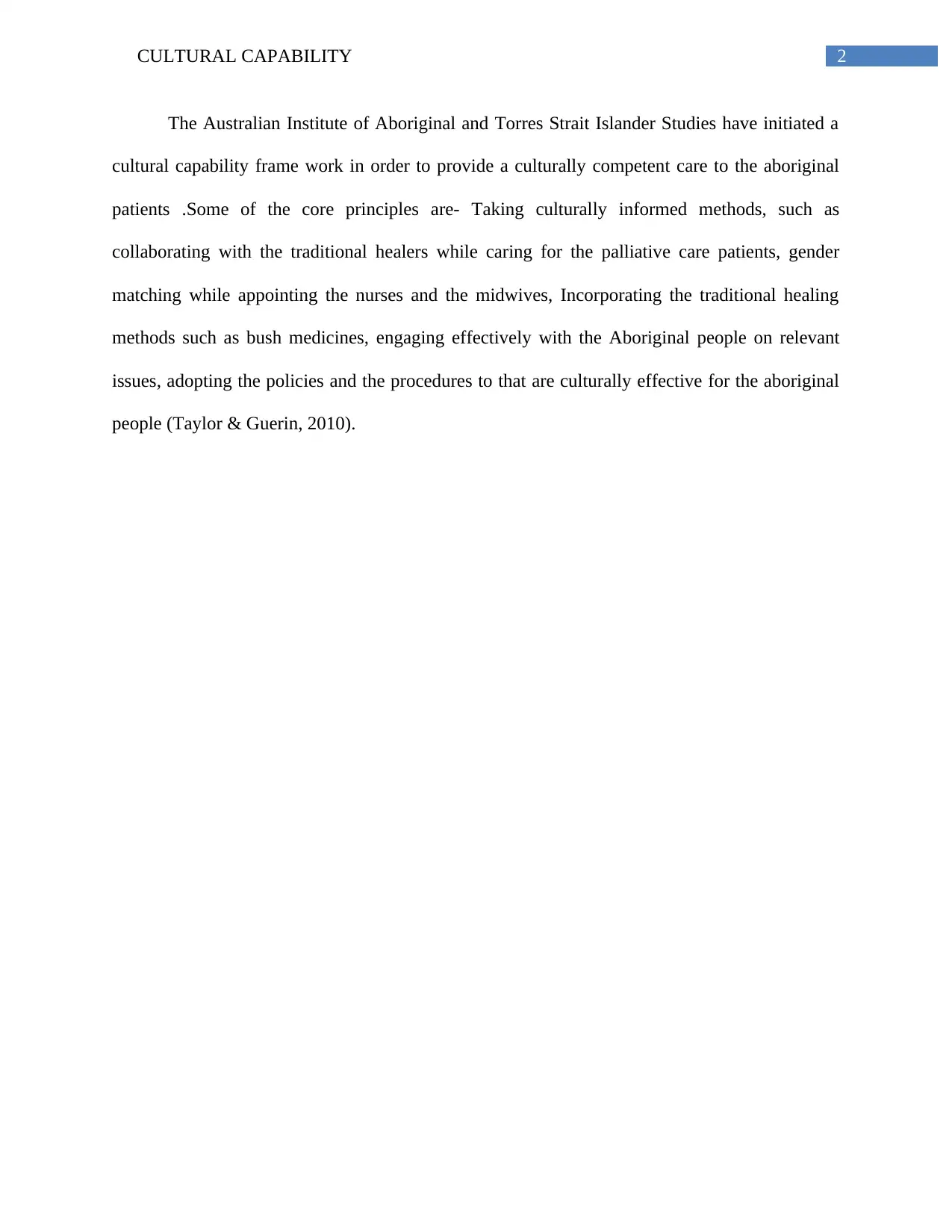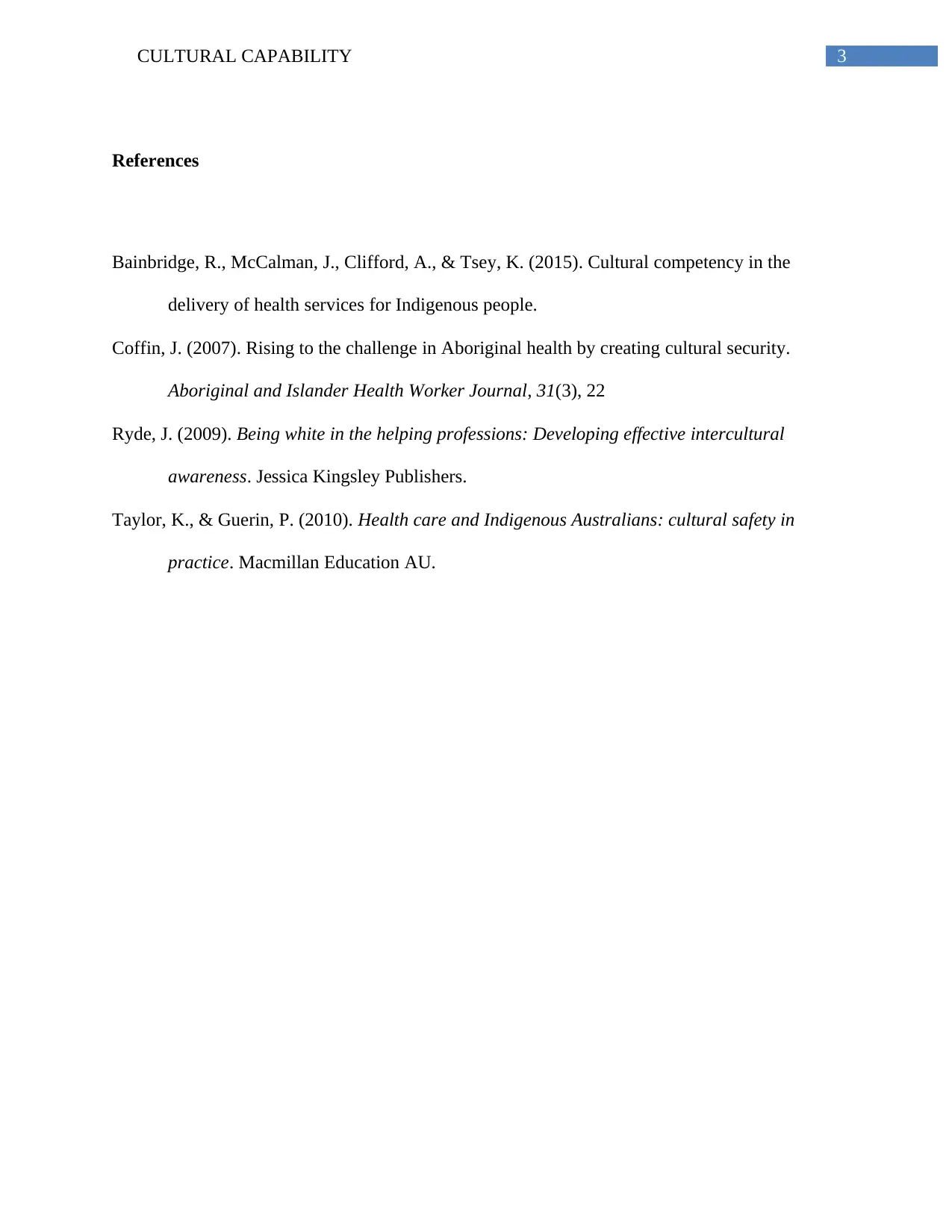Cultural Capability in Healthcare: A Critical Discussion on Principles
VerifiedAdded on 2023/06/12
|4
|556
|99
Essay
AI Summary
This essay critically discusses the core principles of cultural capability for healthcare professionals, emphasizing its importance in delivering appropriate healthcare services to clients from diverse cultural backgrounds. It highlights the negative impacts of ethnocentric health services, particularly on Aboriginal and Torres Strait Islander populations, whose health status is significantly poorer due to historical factors like colonization and social devaluation. The essay explores the key components of cultural capability, including cultural awareness, knowledge, skills, and encounters, and references the Australian Institute of Aboriginal and Torres Strait Islander Studies' framework for culturally competent care. This framework includes culturally informed methods such as collaborating with traditional healers, gender matching in healthcare appointments, incorporating traditional healing practices, and adopting culturally effective policies and procedures to improve healthcare access and quality for Aboriginal people. The essay concludes by underscoring the necessity of cultural competency as a strategy for reducing inequalities in healthcare and enhancing the responsiveness of health services to diverse cultural groups.
1 out of 4










![[object Object]](/_next/static/media/star-bottom.7253800d.svg)